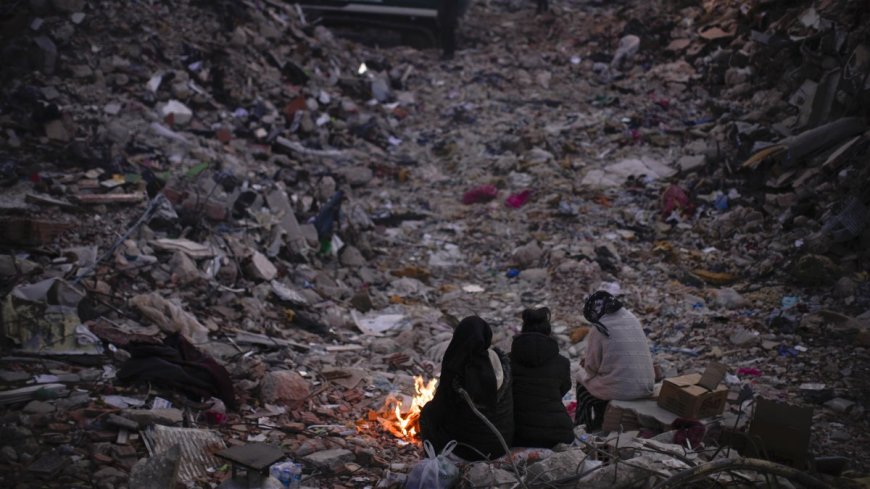Google admits failure to alert millions during Turkey's 2023 earthquakes
Google's early warning system, Android Earthquake Alerts (AEA), failed to send critical alerts to millions of people during Turkey's deadliest earthquakes in 2023. The system underperformed, with only a fraction of the intended recipients receiving notifications, leading to widespread casualties.

Google has acknowledged that its early warning system had failed to deliver critical alerts to millions of people during Türkiye's deadliest earthquakes more than two years ago, a report said on Monday.
Had the algorithms functioned properly, around 10 million people within 157 kilometers (97.56 miles) of the epicenter could have received the highest-level warning up to 35 seconds before the shaking began.
In reality, just 469 people received the alert during the first 7.8 magnitude quake that struck southeastern Türkiye in the early hours of Feb. 6, 2023, while roughly 500,000 received a lower-level notification for mild tremors, Google told the BBC.
The tech giant previously said the system, named Android Earthquake Alerts (AEA), had \"performed well.\"
More than 55,000 people died and over 100,000 were injured in the twin tremors, many of them caught in their sleep.
The AEA is run by the Silicon Valley firm, not individual countries. It works on Android devices, which are said to make up more than 70% of the phones in Türkiye.
The highest-level alert in AEA is the \"Take Action\" warning. It triggers a loud alarm that bypasses the Do Not Disturb mode and takes over the phone's screen. This alert is intended for situations where intense shaking is detected and poses a danger to human life.
A lower-level alert, called \"Be Aware,\" notifies users about possible mild tremors. Unlike the more urgent warning, it doesn't interrupt devices that are set to Do Not Disturb.
Google's early warning system was in place and live on the day of the Feb. 6 quakes. However, it underestimated how strong the tremors were.
It initially estimated the magnitude of the first earthquake at 4.5-4.9 rather than the actual 7.8, BBC cited researchers as explaining in the Science journal.
A similar underestimation occurred during the second quake, leading to only 8,158 phones receiving the \"Take Action\" alert and 4 million getting the less urgent \"Be Aware\" notification.
Following the disaster, Google revised its algorithms and ran simulations showing that the updated system would have delivered \"Take Action\" alerts to 10 million devices and \"Be Aware\" notifications to 67 million people.
\"Every earthquake early warning system grapples with the same challenge – tuning algorithms for large magnitude events,\" Google told the BBC. The company argued that its alerts are not a replacement for national warning systems.
Critics, however, say the two-year delay in disclosing the system's failure is unacceptable.
\"We're not talking about a little event – people died – and we didn't see a performance of this warning in the way we would like,\" Elizabeth Reddy, assistant professor at Colorado School of Mines, told the BBC.
What's Your Reaction?
 Like
0
Like
0
 Dislike
0
Dislike
0
 Love
0
Love
0
 Funny
0
Funny
0
 Angry
0
Angry
0
 Sad
0
Sad
0
 Wow
0
Wow
0























































































































































































